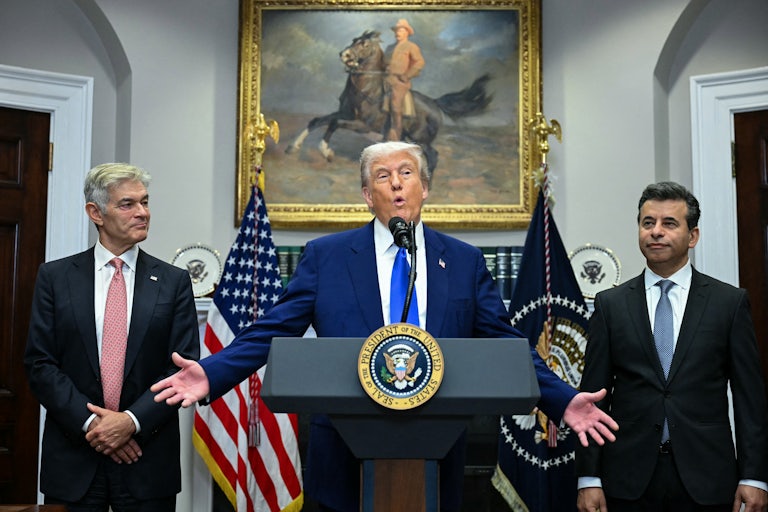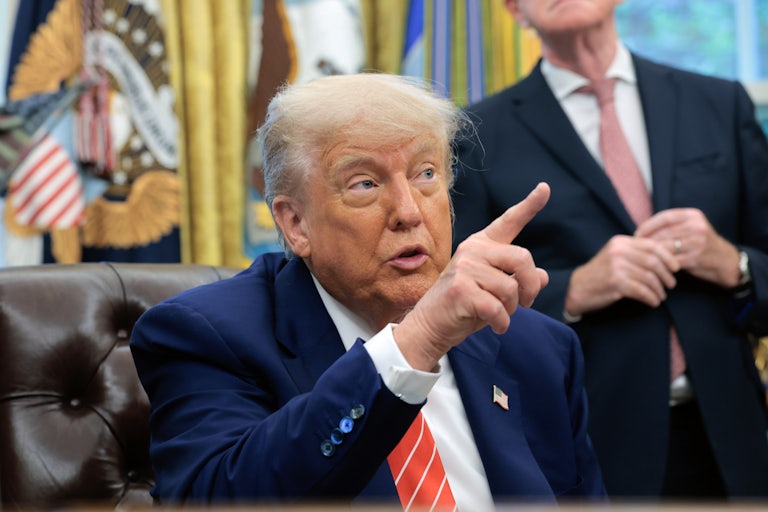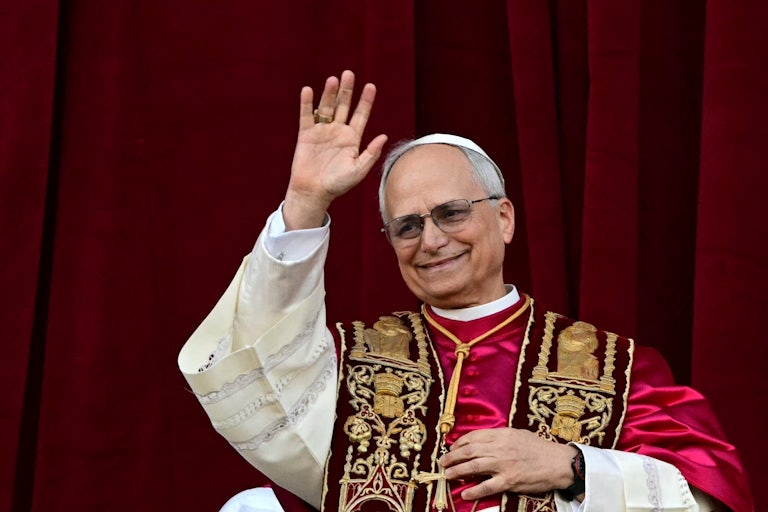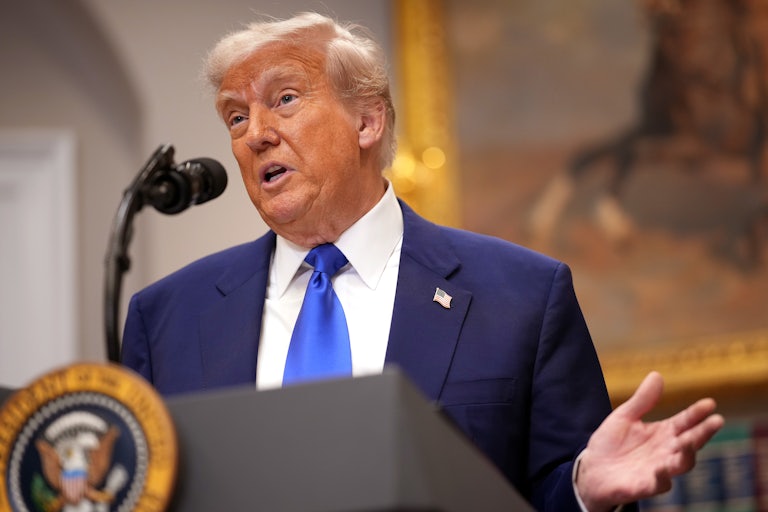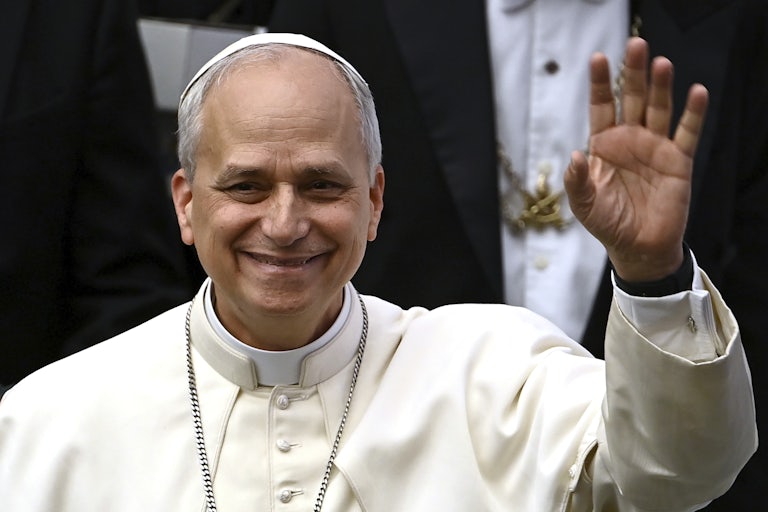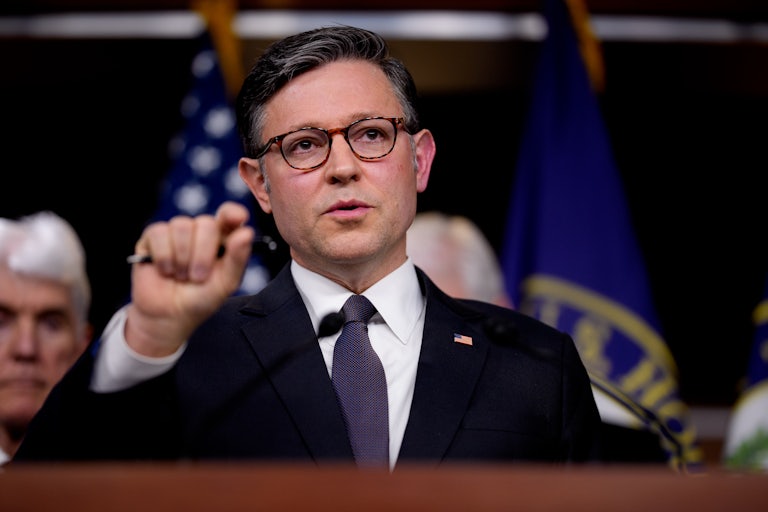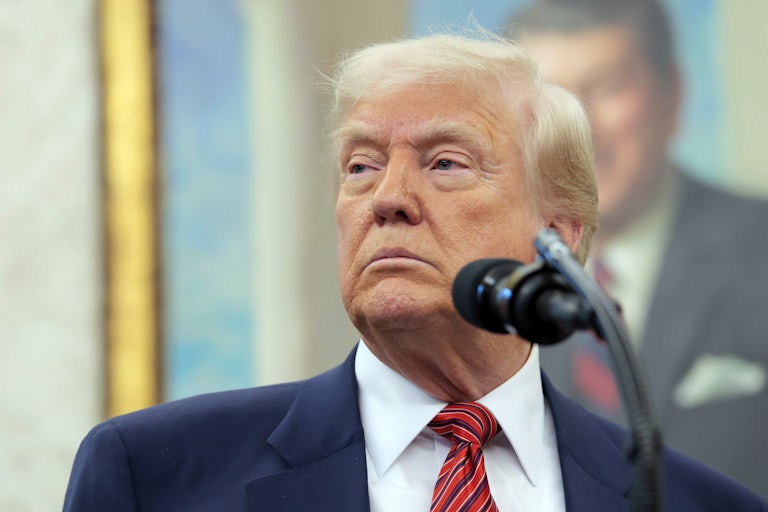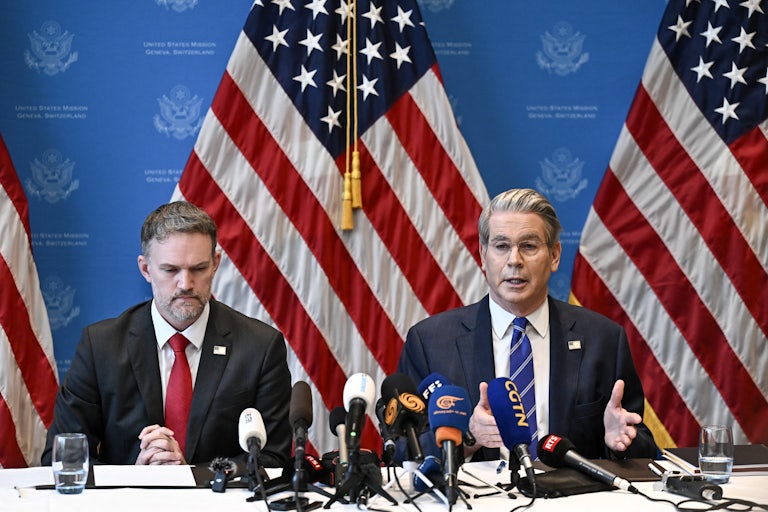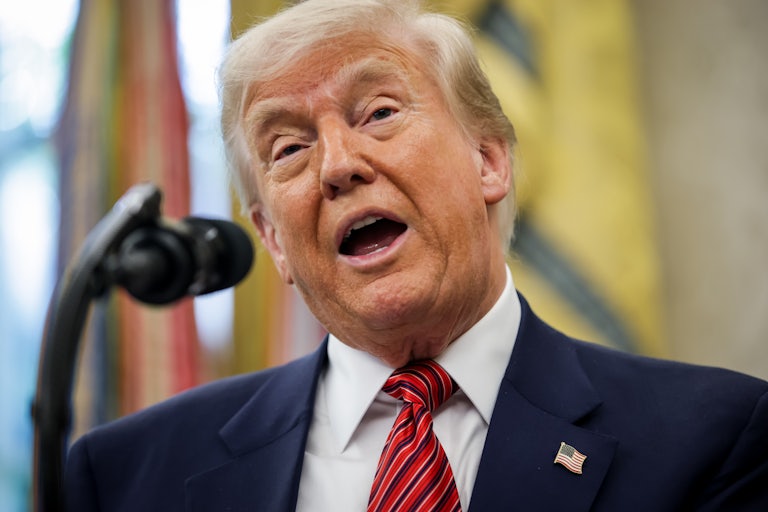Trump’s Transportation Sec Warns More Airport Outages Are Coming
Flying is about to get a whole lot worse, according to Sean Duffy.
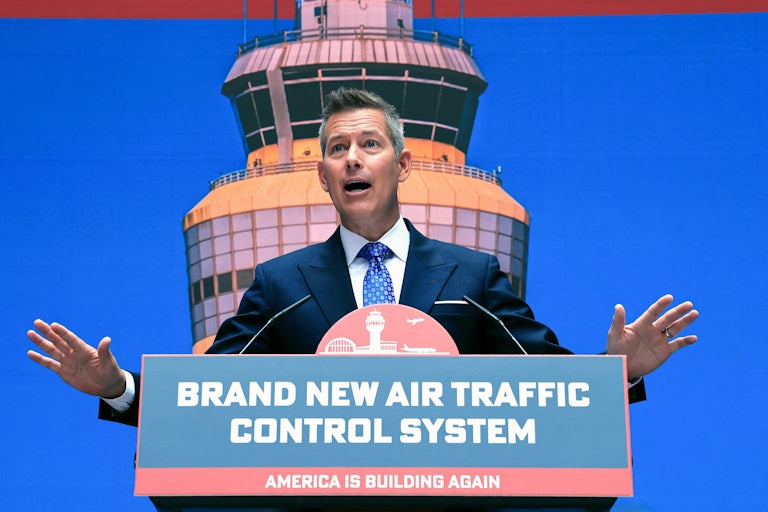
Rolling blackouts at Newark International Airport have continued to erode confidence in America’s airports, and while the Trump administration is promising that New Jersey’s flight problems will soon be a thing of the past, the problems are just beginning for the rest of the nation.
In an interview with MSNBC’s Meet the Press Sunday, Transportation Secretary Sean Duffy had only more warnings for the future of America’s commercial aviation industry.
“The lights are blinking, the sirens are turning.… What you see in Newark is gonna happen in other places across the country,” Duffy said, pointing to telecom and software issues at air traffic towers across the country. “It has to be fixed.”
He noted that, at least at Newark, “we believe we can have it up and running in short order.”
“We’re going to be able to fix that glitch, and we feel a little more comfortable about our primary line that gets the data in on radar,” Duffy said.
Duffy also mentioned that America’s airports are operating on equipment so outdated that the parts are no longer manufactured for replacements, telling host Kristen Welker that the government has to search online for alternatives.
“I’m concerned about the whole airspace. The equipment that we use, much of it we can’t buy parts for new, we have to go on eBay and buy parts if one part goes down. You’re dealing with really old equipment,” he said.
Duffy further acknowledged that while U.S. airspace is safe, a major outage could pose a “risk to life.”
Newark has experienced several significant disruptions since late April, causing hundreds of cancellations and delays, which officials have blamed on aging infrastructure and a shortage of air traffic controllers.
The shortage of air traffic controllers is nothing new, however: It’s been a problem decades in the making. A large bulk of controllers retired over the last 10 years—a coincidence made possible due to the fact that the majority of the staff onboarded simultaneously as replacements for the 11,350 controllers fired by President Ronald Reagan in 1982.
In 2015, the National Air Traffic Controllers Association told Congress that the situation had reached a “crisis” level and that, at the time, the Federal Aviation Administration had missed hiring targets five years in a row. For years, the federal government has failed to properly incentivize younger generations to view the famously high-stress, high-education, and relatively antisocial job as desirable—and similar to other industries, that lapse between the aging workforce and the stalling youth is contributing to a brain drain. (To address this, Duffy also said he’d told the union that air traffic controllers will be allowed to work past the age of 56.)
On top of that, the massive worker shortages have forced controllers to do double duty, for instance at Reagan International Airport, where controllers were reportedly tasked with handling both the flight paths of commercial airplanes and helicopters—work typically done by two separate controllers.
“The Congress and the country haven’t paid attention to it, and they expect it to work,” Duffy told MSNBC.
In February, the administration erased 400 FAA roles, including positions that supported air safety. Duffy confirmed the cuts that time, though he attempted to minimize them by highlighting the overall staffing of the agency, which he claimed employs some 45,000 workers.
At the time, Duffy said he would “supercharge” air traffic controller hiring, hoping to shave four months off the typically arduous onboarding process. But that likely wouldn’t make a dent in America’s air traffic staff anytime soon: It currently takes about four years to become a certified air traffic controller.
Questions have emerged as to whether Elon Musk and the Department of Government Efficiency directed the FAA cuts. But when asked directly about the issue, Duffy skirted the question.
“We were having a conversation about ‘Who do we preserve’,” Duffy said Sunday. “We went back and forth, and Elon agreed; the president agreed, ‘Of course you want to keep air traffic controllers.’ We’re trying to hire more of them. But I think the key is: Can your government be more efficient?”
“You can actually be more efficient and still accomplish the mission of safety,” Duffy told MSNBC.
On Thursday, Duffy released an eight-page framework to replace America’s antiquated aviation infrastructure, revealing at a press conference that the Trump administration would be investing in a “brand new, state-of-the-art air traffic control system that will be the envy of the world.” Unfortunately, the pitch did not mention how the agency would fund the massive technological overhaul.
